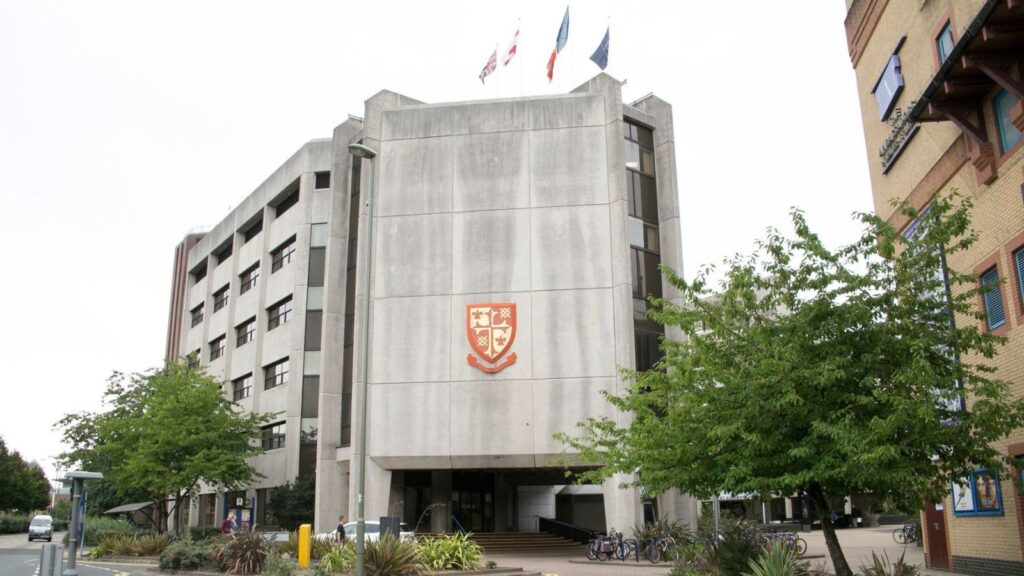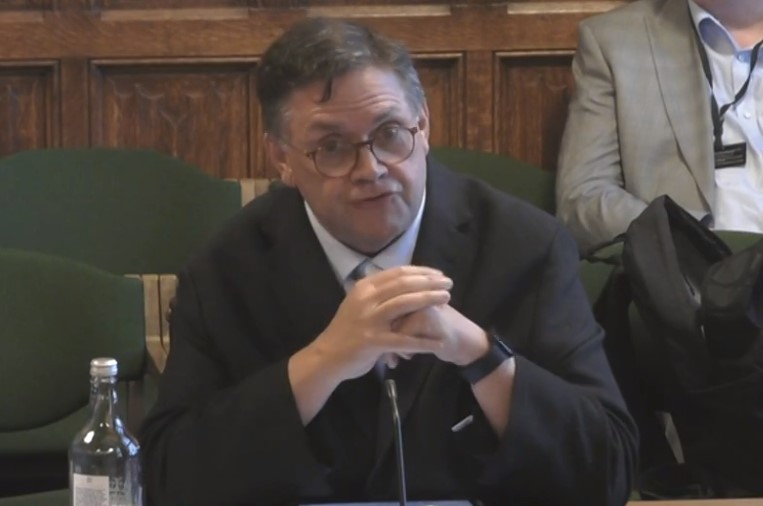There are more local councils with financial issues that will crystallise into the issuance of a section 114 notice than is commonly thought, according to Brendan Arnold, interim director of finance and section 151 officer at Woking Borough Council.
Speaking at a CIPFA-organised session on avoiding section 114 notices at the Local Government Association’s (LGA) Annual Conference and Exhibition this morning (5 July), Arnold revealed that he had been contacted by a number of councils for advice and information since he issued a section 114 notice on 7 June in response to the “unprecedented” financial challenges facing Woking.

Arnold said councils should not be afraid to bring potential issues to the fore. “A s114 notice is not a badge of shame but is instead a means of moving forward and stepping into a solution,” he told conference delegates.
Although unable to comment on specific failings at Woking as an external review is in process, he said the council’s troubles were down to the “management of risk, not delivery of savings”.
He recognised that local government was generally good at managing risk, citing the use of risk registers. But after years of financial austerity some councils have embarked on “more detailed and risky commercial enterprises”, he said, which has meant that these risk registers are no longer adequate for all situations. There is more to be done to improve these and the culture surrounding them to provide audit assurance about risks, Arnold stated.
Peer reviews conducted through the LGA “might be a place to put emphasis on risk management”, he suggested. Lessons could also be learnt from the commercial sector, but disasters happen there too, he stressed.
“Culturally, there’s something about acknowledging mistakes and being afraid to admit mistakes,” Arnold said. Too often, councils deal with mistakes “by trying to make them less obvious, rather than crystallising them” in order to learn crucial lessons from them.
Allied with cultural issues, Arnold noted the importance of relationships – particularly between the s151 officer, the chief executive, and the monitoring officer. He asked whether more could be done to ensure these relationships are of sufficient quality in all councils.
Another lesson learnt from his recent experience at Woking has been that the 21 days between a section 114 notice being issued and full council meeting has proved “very valuable”. All involved in the process have been able “to have conversations, to seek clarifications, reflect on what the community thinks about what has happened, and on what should happen next”, he stated.
15th Annual LATIF & FDs’ Summit – 19 September 2023
250+ Delegates from Local Government & Investment
Ultimately, Arnold said that financial problems and s114 notices happen because “a lot of gates are left open, rather than because one thing hasn’t happened”. At Woking, he pointed out, issues certainly arose because of the levels of investment, but also because there had not been an opinion given from an external auditor since 2018/19. Had a more up-to-date opinion been issued, it is likely that the problems would not have grown quite so large, he said.
Additionally, he noted that oversight over borrowing from the Public Works Loan Board (PWLB) was lacking, with questions over what was happening at Woking only arising after a number of years.
Woking is left with “difficult decisions” to make, and is engaging with government to create a path to recovery, Arnold said. The council is now considering disposing of some of its asset portfolio to help with this. “The s114 notice is a key step in allowing this recovery to begin,” he concluded.

Casino-style borrowing
In the same session, Rob Whiteman, chief executive officer at CIPFA, reflected on the changing causes behind the issuance of s114 notices “in an era of quite a lot of [government] interventions – more than we have seen in our careers”. He said it was a good idea to reflect on why this has happened, and what will happen next.
Whereas in the past s114 notices were issued following failures of corporate management and over-optimism on savings, transformation programmes and external pressure, there is now a “new phenomenon” of governance decisions being taken not just on budget but on commercial and regeneration issues. “Some councils have made spectacularly bad commercial decisions,” he said.
Like Arnold, he noted that the government had failed to check PWLB drawdowns. He suggested that more checks would now be added to the process, meaning some of the freedoms of the Prudential Code might be lost.

Whiteman added that while “casino-style borrowing and poor governance” might now be stopped, there could be other issues that cause s114 notices to be issued in the future. “We make decisions far too quickly and don’t necessarily have the mechanisms in place to stress test them,” he said. Governance needs to be much stronger, and any potential conflicts of interest at councils erased.
“I think a s114 notice is a sign of control, not of failure,” he concluded. “They work best when there is corporate support to issue it.” If the culture of the council is right then the s114 notice can more quickly lead to problems being resolved, whereas a culture of doing everything possible to try and avoid issuing it might lead to a worsening of problems.
He said any council in financial trouble should not be afraid to issue a s114 notice, making it “a corporate activity” that will be a better strategy in the medium term than avoidance. “Don’t avoid the inevitable,” he said. “Section 114s can be avoided, but don’t avoid them for the wrong reasons.”

Auditing crisis
Adding to Arnold’s points about external auditing, Whiteman termed the abolition of the Audit Commission an “unmitigated disaster” in terms of the audit market collapsing and a “line of defence” being removed in picking up on warning signs of financial trouble.
Whiteman, who recently gave evidence to the Levelling Up, Housing and Communities (LUHC) Committee’s inquiry into financial reporting and audit in local authorities, called for an acceleration of the reforms recommended in the Redmond Review.
“Audit is in a terrible place and there is a need to revitalise strong local audit,” he said. “It is in everyone’s interests to restore local government audit.”
Arnold noted that the auditing process could also be improved by strengthening audit committees at local councils. “It is extremely challenging to be an audit committee member, even compared to cabinet and executive committees,” he said.
There is a need for more independent members to join audit committees – and for them to be properly renumerated – he told delegates. “Some councils have external members of audit committees and these tend to do very well, as they give a fresh perspective,” he said.
He called for a debate about the “character” of audit committees in local government, asking whether there was a case for them to have some role in executive decision making.
By Jason Holland, reporting from the Local Government Association’s (LGA) Annual Conference and Exhibition in Bournemouth
Click here for a report on a key session at the conference yesterday (4 July) featuring Michael Gove, who officially launched the Office for Local Government (Oflog), and Angela Raynor
—————
FREE weekly newsletters
Subscribe to Room151 Newsletters
Follow us on LinkedIn
Follow us here
Monthly Online Treasury Briefing
Sign up here with a .gov.uk email address
Room151 Webinars
Visit the Room151 channel













